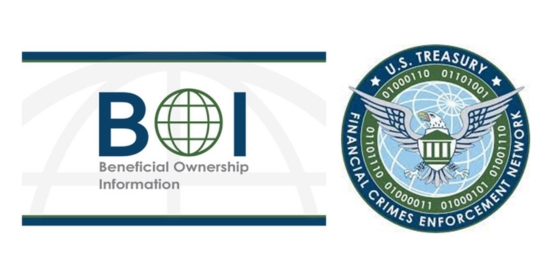IRS Releases New Employee Retention Tax Credit Guidance
Mar 28, 2025

Wait, we’re talking about the Employee Retention Tax Credit (ERC) yet again? Yes, you read it right, after hearing very little on the topic for the past 18 months, ERC is back in the news. On March 20, 2025, the IRS released new Employee Retention Tax Credit Guidance in an updated FAQ.
Specifically, the IRS introduced a new section entitled “Income Tax & ERC,” that addresses, one, situations where taxpayers didn’t reduce their claimed wage expense but received the ERC, and two, situations where taxpayers did reduce wage expenses but had a disallowed ERC claim. The tax authority also expanded guidance on reporting ERC fraud.
Here is what you need to know:
Income Tax & ERC
- The IRS stands by its original position that taxpayers should have reduced their deductible wage expense by the amount of allowed ERC in the tax year the qualified wages were paid or incurred. However, the IRS is now providing alternative solutions for claiming unreduced wages. Under the revised guidelines, taxpayers now have the option to report the overstated wage expense as gross income in the tax year when the Employee Retention Credit was received, rather than amending their previous returns. This marks a shift from the earlier policy.
- The updated FAQ also addresses scenarios where an ERC claim was denied after a taxpayer had already reduced their wage expenses for the year in which the qualified wages were paid. In these cases, taxpayers can now adjust their current return to reflect the increased wage expense corresponding to the disallowed ERC, instead of filing an amended tax return, an AAR, or a protective claim for refund for the earlier tax year. It’s important to note that taxpayers may still opt to amend previous returns to recapture the previously reduced wages.
ERC Scams
- The IRS has issued further guidance on the procedures for reporting ERC-related fraud, strongly urging taxpayers to report any suspicious activities, including illegal, tax-related activities involving ERC claims, individuals who promote improper and abusive tax schemes, and tax return preparers who deliberately prepare improper returns. The step-by-step process for reporting ERC fraud can be found in the “ERC Scam” section of the FAQ.
To read the full FAQ along with the updated guidance, please refer to the IRS website here. To better understand how this new guidance may impact your business, we encourage you to connect with our Employee Retention Tax Credit (ERC) lead, Mike Hanf.
Mike Hanf, Tax Partner – mike.hanf@wvco.com
Categories: Tax Compliance
Before the Deal: An Introduction to Due Diligence
Mar 24, 2025
Understanding Buy-Side and Sell-Side Due Diligence
Buying or selling a business is a highly intricate process that requires strategic foresight and rigorous analysis. Whether operating on the buy-side or sell-side, conducting comprehensive due diligence is the cornerstone of deal success, mitigating exposure to financial, operational, and legal risks.

What is due diligence?
Due diligence is an investigative process designed to validate and assess all material aspects of a potential transaction. It involves a deep dive into financial, legal, operational, technological, and commercial factors to ensure a well-informed decision-making process. Due diligence highlights considerations by providing an investigative lens that ultimately protects the buyer and the seller from potential pitfalls, safeguarding against unforeseen liabilities and value erosion.
Basics of Buy-Side Due Diligence
On the buy-side of a transaction, ensuring that a potential target is a solid investment and aligns with your business’s overarching goals is paramount. Therefore, the primary focus of buy-side due diligence is to verify the accuracy and integrity of the seller’s financial disclosures while identifying potential red flags. Key areas of review include:
- Quality of Earnings (QoE): Assessing revenue sustainability, EBITDA adjustments, and non-recurring expenses to gauge true earnings power.
- Cash Flow Analysis: Examining historical and projected free cash flow to ensure liquidity adequacy and debt serviceability.
- Balance Sheet Strength: Evaluating working capital efficiency, asset quality, contingent liabilities, and off-balance sheet exposures.
- Legal & Compliance Risks: Identifying potential litigation, contractual obligations, and regulatory concerns that could impact post-transaction integration.
While audited financial statements provide a fundamental baseline, they often fail to capture operational synergies, market positioning, and cultural fit – making an integrated due diligence approach essential.
Basics of Sell-Side Due Diligence
For sellers, a proactive due diligence strategy enhances deal certainty and strengthens negotiating leverage. The goal is to preemptively identify and address areas of concern that could derail valuation or delay closing. Sell-side due diligence entails:
- Financial Statement Readiness: Ensuring GAAP/IFRS compliance, reconciling discrepancies, and preparing robust financial models to withstand buyer scrutiny.
- Legal and Regulatory Preparedness: Resolving outstanding liabilities, clarifying ownership structures, and securing necessary approvals to expedite deal execution.
- Commercial Positioning: Validating customer contracts, market share stability, and competitive differentiation to justify premium valuations.
By conducting due diligence preemptively, sellers can bolster buyer confidence, minimize post-LOI renegotiations, and drive a more efficient closing timeline.
Making Informed Decisions
Regardless of deal positioning, due diligence is a critical component of transactional success. Whether assessing an acquisition target or preparing for a liquidity event, the process is inherently resource-intensive and demands meticulous planning. Engaging a third-party advisory firm can provide an independent, data-driven perspective, enhance deal certainty, and optimize transaction outcomes.
Connect With Us.
Patrick Mannion, Managing Director
Transaction Advisory Service
spatrick.mannion@wvco.com
Categories: M&A
UPDATED 3/3/205 – BOI Reporting Reinstated: Latest Legal Developments
Feb 20, 2025

UPDATE 3/3/2025: FinCEN Not Issuing Fines or Penalties in Connection with Beneficial Ownership Information Reporting Deadlines, read FINCEN’s release here!
On Monday, February 17, a federal district court judge in Texas lifted the suspension on the Corporate Transparency Act, reinstating the requirement to report beneficial ownership information.
In a recent announcement from the Financial Crimes Enforcement Network (FinCEN), the deadline for most companies to submit their reports has been extended to 30 calendar days from February 19, 2025, setting the new due date to March 21, 2025.
FinCEN also mentioned plans to review the beneficial ownership information reporting requirements under the Corporate Transparency Act. This review aims to reduce the reporting burden on low-risk entities while focusing enforcement efforts on threats that pose significant risks to U.S. national security. The criteria for identifying low-risk companies remain unclear, but this evaluation will occur over the next 30 days.
For general details on BOI Reporting being reinstated, please visit William Vaughan Company’s BOI Insights & Resource Hub. For comprehensive guidance, we encourage you to visit FINCEN’s website.
Categories: Tax Compliance
UPDATED 12/27/24 – BOI Reporting Requirements Reinstated – Earliest Filing Deadline Now January 13, 2025
Dec 27, 2024

UPDATE 12/27/2024: BOI Whiplash? Fifth Circuit Reverses Course, Blocks BOI Reporting in reversal decision, read the full NFIB article here!
On December 23, 2024, a federal court of appeals lifted the injunction on the Corporate Transparency Act (CTA). Effective immediately, the Act’s BOI reporting requirements are reinstated.
In response to the court’s ruling, FinCEN has recognized the need for additional time to comply, therefore granting a 12-day extension so that most BOI filings are now due by January 13, 2025.
FINCEN issued the following alert:
In light of a December 23, 2024, federal Court of Appeals decision, reporting companies, except as indicated below, are once again required to file beneficial ownership information with FinCEN. However, because the Department of the Treasury recognizes that reporting companies may need additional time to comply given the period when the preliminary injunction had been in effect, we have extended the reporting deadline as follows:
- Reporting companies that were created or registered prior to January 1, 2024 have until January 13, 2025 to file their initial beneficial ownership information reports with FinCEN. (These companies would otherwise have been required to report by January 1, 2025.)
- Reporting companies created or registered in the United States on or after September 4, 2024 that had a filing deadline between December 3, 2024 and December 23, 2024 have until January 13, 2025 to file their initial beneficial ownership information reports with FinCEN.
- Reporting companies created or registered in the United States on or after December 3, 2024 and on or before December 23, 2024 have an additional 21 days from their original filing deadline to file their initial beneficial ownership information reports with FinCEN.
- Reporting companies that qualify for disaster relief may have extended deadlines that fall beyond January 13, 2025. These companies should abide by whichever deadline falls later.
- Reporting companies that are created or registered in the United States on or after January 1, 2025 have 30 days to file their initial beneficial ownership information reports with FinCEN after receiving actual or public notice that their creation or registration is effective.
- As indicated in the alert titled “Notice Regarding National Small Business United v. Yellen, No. 5:22-cv-01448 (N.D. Ala.)”, Plaintiffs in National Small Business United v. Yellen, No. 5:22-cv-01448 (N.D. Ala.)—namely, Isaac Winkles, reporting companies for which Isaac Winkles is the beneficial owner or applicant, the National Small Business Association, and members of the National Small Business Association (as of March 1, 2024)—are not currently required to report their beneficial ownership information to FinCEN at this time.
For general information regarding the CTA and BOI reporting requirements being reinstated, please refer to William Vaughan Company’s BOI Insights & Resource Hub.
Categories: Tax Compliance
What the Recent Injunction Against the Corporate Transparency Act (CTA) Means for Your Business
Dec 05, 2024

On Tuesday, a federal court in Texas issued a nationwide injunction prohibiting the enforcement of the Corporate Transparency Act (CTA). The CTA, which was set to require an estimated 32.5 million companies in the U.S. to report sensitive information about their beneficial owners (BOI) to FinCEN by January 1, 2025, is now on hold due to constitutional concerns.
What Does This Mean for You?
The court’s decision means that companies are no longer obligated to meet the January 1, 2025, BOI reporting deadline or comply with related CTA requirements. While this provides immediate relief, the ruling is not necessarily final. The federal government is expected to appeal, and higher courts, including the Supreme Court, may weigh in.
For now, the CTA’s enforcement is paused. However, the broader legal battle is likely to continue, and the final outcome remains uncertain.
Our Recommendation
We advise clients to remain proactive:
- Continue Gathering Information: If your business falls under the CTA’s reporting requirements, we recommend you gather the necessary BOI information. Preparing now will help ensure compliance should the injunction be lifted or the requirements reinstated. Check out our BOI Insights & Resource Hub for details.
- Stay Informed: Legal and regulatory landscapes can shift quickly. We will continue to monitor developments closely and provide updates as the situation evolves.
- Be Ready to File: While enforcement is currently halted, the best course of action is to be prepared to submit your BOI report promptly if needed.
The implications of the Corporate Transparency Act injunction go beyond compliance and touch on broader concerns about federal authority and privacy. Rest assured, we are here to guide you through these changes and keep you informed. If you have questions or need assistance navigating these requirements, please get in touch with a member of our BOI reporting team at wvco.com/contact-us.
Categories: Tax Compliance
